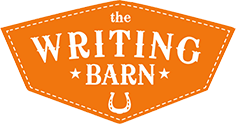Thank you to all who have made our weekly Rejecting Rejection series a part of their writing routines. Knowing the series inspires Barn blog readers to keep at it, getting to the page–whether it be a blank screen or blank page–means the series is doing what we had hoped it would. Letting us know we aren’t alone and there are as many ways to deal with the “nos” as there are writers. Today, we welcome debut author Catherine Linka to the series. Welcome, Catherine.
Biggest Best Effort
by Catherine Linka
For a long time, I didn’t think much about publishing. I did my MFA at Vermont College of Fine Arts, and then focused my efforts on writing. My life was complicated, and I didn’t have the energy to put into submitting my work to agents or editors. Plus, I worked as a children’s and YA book buyer for an independent bookstore, so I saw what types of books sold, and what I was writing did not fit nicely or neatly into those categories.
I thought perhaps I might have a marketable book when I sent off the manuscript for my fourth novel to an agent who worked on it with me for several months before she said, “This isn’t your first book. It’s not big enough.”
And I got it. I totally got it. You have to come out with your biggest, best effort or your debut will be unremarkable and your subsequent books might not get much attention.
 When I wrote A Girl Called Fearless two years later, I knew this book was commercial. The first draft came out in a torrent of writing, and I absolutely positively knew I could sell it. It had romance, high stakes, and a fast pace. It was high concept, and there was nothing quite like it on the market.
When I wrote A Girl Called Fearless two years later, I knew this book was commercial. The first draft came out in a torrent of writing, and I absolutely positively knew I could sell it. It had romance, high stakes, and a fast pace. It was high concept, and there was nothing quite like it on the market.
And I was so convinced I told everyone, “If I can’t sell this book, I can’t sell ANYTHING.”
I had spent years researching agents and identifying ones I wanted to work with, both because they were creating amazing opportunities for their clients, and because I liked them personally. I sent off the manuscript to two agents and within a week had two offers of representation. Yes!
A couple weeks later in early June, my agent sent out the manuscript to selected editors. And it was rejected. With regrets, but rejected nonetheless.
“Oh we can’t, because we have blah blah blah and this would compete.”
“Oh if only you’d contacted us a week ago.” Two weeks ago. A month ago. Six months ago.
“We like it a lot, but we don’t LOVE it.”
“The first half feels like a different book from the second half, but I don’t know how I could edit the story to make it work.”
The rejections continued all summer long. By September, my agent, who is very smart, creative and tenacious, had exhausted the possibilities.
Oh my God, I thought. I really can’t sell anything.
And so I entered what philosopher Kierkegaard called “the dark night of the soul” a.k.a. despair. I’d done my MFA. I’d written every day for two to three hours. I’d faithfully and thoughtfully critiqued others’ work. I’d put on dozens of events for other authors. I had paid my dues, but no! I could not sell a highly commercial book.
Should I just quit writing and stop torturing myself? I mean, really, what was the point?
The point was I couldn’t stop writing. Writing was my lifeline. It had kept me sane during the years I’d struggled with family tragedy. I couldn’t give up writing, but I could give up the life-sucking effort to get published.
As summer turned to fall, I wrote short short stories, writing exercises really, anything to keep writing and not think about the book. It was obviously over.
But in October, my agent started getting questions from editors. “What ever happened to that book? I can’t stop thinking about it.” And one day, a young editor asked if I would be willing to rewrite the book with her, but without a contract.
My agent told her that of course I would! And my collaboration with Mollie Traver of St. Martin’s Press began.
A Girl Called Fearless was published on May 6.
The most important thing I want to say to aspiring writers is not to let publishing rejection destroy your desire to write. Publishing is about what publishers believe can sell in a large market. Don’t confuse rejection with an assessment of your talent or creativity. Writing will keep you alive during the hard times. Keep going!
 Catherine Linka is proud that her very commercial book, A Girl Called Fearless, has been nominated for the ALA’s Amelia Bloomer Project recognizing feminist literature for young readers.
Catherine Linka is proud that her very commercial book, A Girl Called Fearless, has been nominated for the ALA’s Amelia Bloomer Project recognizing feminist literature for young readers.

Never, ever give up. I just read an article that Kathryn Stockett got 60 rejections of THE HELP before an agent took her on. Can you imagine if she’d given up after 5 or 10 or even 25 rejections? It takes a true artist who believes deeply in themselves and their work to keep going, and you are that. 🙂